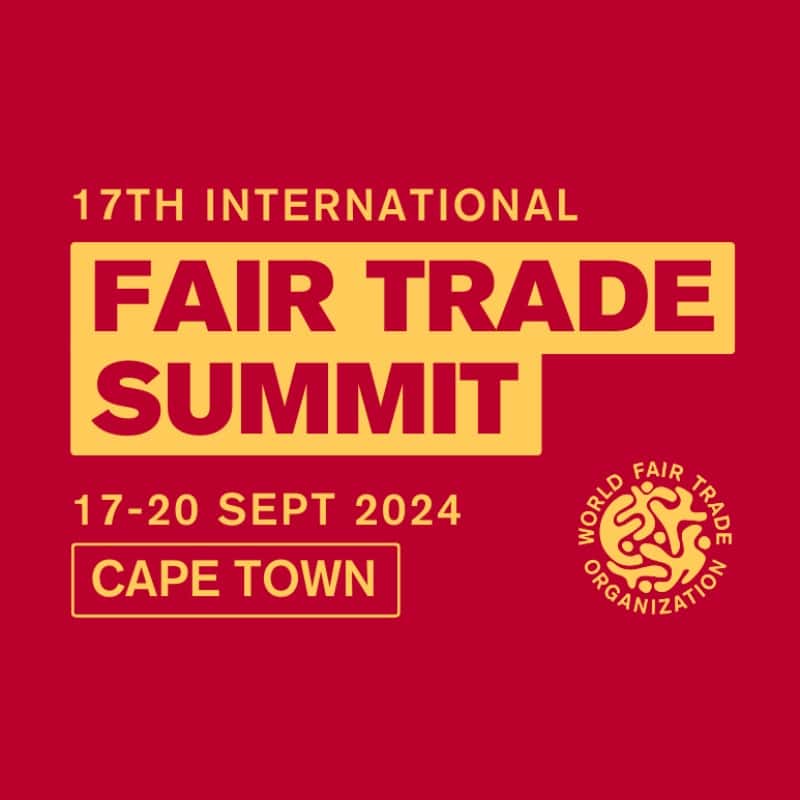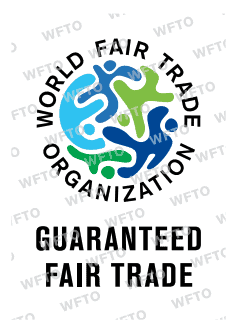COP26 PRESS RELEASE: THERE IS NO CLIMATE JUSTICE WITHOUT FAIR TRADE
BONN, Germany – The international community must confront trade injustice, enforce transparency and accountability in supply chains, and secure climate financing mechanisms, living incomes and wages for the world’s smallholder agricultural producers, artisans and workers in order to successfully address the climate crisis and guarantee a sustainable future for all, the world’s leading Fair Trade organizations announced today.
In a position paper released ahead of the 2021 United Nations Climate Change Conference, also known as COP26, Fairtrade, the World Fair Trade Organization, and the Fair Trade Advocacy Office and 14 additional signatories from the global Fair Trade movement, have outlined the critical steps deemed necessary for achieving comprehensive climate justice, including urging the private sector to increase transparency and accountability over sustainability in supply chains; demanding strengthened environmental regulations and trade rules; and calling for facilitated access to appropriate funding mechanisms for smallholder farmers and producers.
Without these measures in place, the signatory organizations argue, the international community’s climate ambitions will continue to fail the planet’s most vulnerable communities, particularly the smallholder farmers and agricultural producers, who remain increasingly affected by the consequences of climate change.
“Our planet’s farmers and agricultural workers are on the frontline of the global climate crisis. But far from being victims, they are integral in developing those key climate solutions that can reverse environmental degradation and pave the way towards a more sustainable tomorrow,” declared Dr. Nyagoy Nyong’o, Global CEO of Fairtrade International.
“That’s why the Fair Trade movement is raising its voice in this bold position paper – to ensure farmers and agricultural workers are included in the COP26 outcomes; to guarantee fair incomes for our planet’s agricultural producers; and to build back better and greener in a post-COVID world.”
Held in Glasgow, Scotland from 31 October to 12 November 2021, COP26 will bring together global leaders and leading stakeholders to discuss the international community’s climate ambitions and a pathway to building back sustainably following the ravages of the COVID-19 pandemic.
Against this backdrop, the Fair Trade movement’s position paper calls on global leaders to immediately deliver on climate targets by:
- Urging governments to impose transparency and accountability measures for private sector supply chains while working to ensure sustainable livelihoods for smallholder agricultural and non-agricultural producers and workers;
- Demanding facilitated access to climate finance that empowers smallholder farmers, producers, artisans, and workers to adapt and become more resilient to climate change while shifting to net zero production on-farm;
- Calling on the private sector to pay “fair value, fair prices, and adhere to fair trading practices to ensure producers have the resources to make the investment needed for climate adaptation and mitigation”;
- and Lobbying for binding legal framework conditions that embed the highest environmental standards into a new, sustainable global trade policy.
“An economic system that thrives on the exploitation of our planet’s resources and our planet’s people is a broken economic system,” said Juan Pablo Solís, Fairtrade’s Senior Advisor for Environment and Climate. “And climate measures that exclude fairness and climate justice from the core of their targets are measures that will once again fail to achieve real climate action. In Glasgow, global leaders will need to think inclusively if they want have meaningful impact in creating a sustainable tomorrow for all.”
Citing IFAD/CPI research, the Fair Trade movement’s COP26 position paper points out that less than 2% of climate finance makes its way to small scale farmers, adding that awarding criteria and procedures of financial mechanisms such as the Green Climate Fund must be aligned to small producers and their organizations so that they can access available funding and manage it in a non-bureaucratic way.
“Marginalised communities across the world are suffering the severest impact of climate change. Their production practices and personal choices have contributed the least to the current climate crisis but they are the most affected by it,” said Roopa Mehta, President of WFTO. “The call for climate justice requires that these communities have a seat at the negotiating table – their voices heard and their concerns addressed.”
“Fair Trade business models contribute to the prosperity and well-being of the most marginalised, ensuring trade justice,” Mehta continued. “We urge big businesses, policymakers and other stakeholders to collectively work towards trade and climate justice for building a fairer and sustainable future.” Sergi Corbalán, Managing Director of the Brussels-based Fair Trade Advocacy Office, echoed Mehta’s call.
“The world is at a crossroads and business-as-usual is simply not an option,” Corbalán stated. “Governments must take action to set the right policy framework for fair and sustainable global trade. This includes not shying away from legislating, since relaying exclusively on voluntary commitments and market forces will not bring us any closer to achieving the Agenda 2030 objectives and the Paris Agreement.”
Get a copy of the position paper and the press release.
PRESS CONTACT:
Andrew Zaganelli Giacalone
Senior Advisor, Media Relations
Fairtrade International
a.giacalone@fairtrade.net
+49 172 5468527
About Fairtrade International
Fairtrade changes the way trade works by putting farmers and workers first. That means better prices, decent working conditions and more trade power for small-scale producers. Leading by example, Fairtrade has producers represented in 50% of its governance. Fairtrade International is an independent non-profit organization representing 1.8 million farmers and workers worldwide. It owns the FAIRTRADE Mark, a registered trademark appearing on more than 30,000 products, which is the most recognized and trusted sustainability label in the world. Fairtrade International and its member organizations collaborate with businesses, engage shoppers, activate civil society, and enable producers to take control in order to bring about a fair, sustainable future — a future rooted in social justice.
About Fair Trade Advocacy Office
The Fair Trade Advocacy Office catalyses collaboration within the international Fair Trade movement on policy, advocacy and campaigning activity; facilitates knowledge co-creation and sharing on Fair Trade policies and practices; and leads advocacy work on European Union legislation, policies and their implementation.
About World Fair Trade Organization
The WFTO is the global community and verifier of social enterprises that fully practice Fair Trade. Spread across 76 countries, the more than 400 WFTO members all exist to serve marginalised communities. Through peer reviews and independent audits WFTO ensures members are mission-led businesses that put people and planet first in everything they do. WFTO members own the Guaranteed Fair Trade label and once fully-verified, they can use it on all their products. Their direct impact includes more than 965,000 livelihoods supported through the operations and supply chains of these enterprises. WFTO is democratically run by its members, who are part of a broader community of over 1,000 social enterprises and 1,500 shops.
Share This Post
Tags
Contact
- Parallelweg West 9A, 4104 AX Culemborg, The Netherlands
- +31649086439
- info@wfto.com
If you want to contact any of our staff members (not Board) please write to the First Name (ex: Paul)@wfto.com
© 2024 World Fair Trade Organization. All Rights Reserved.

